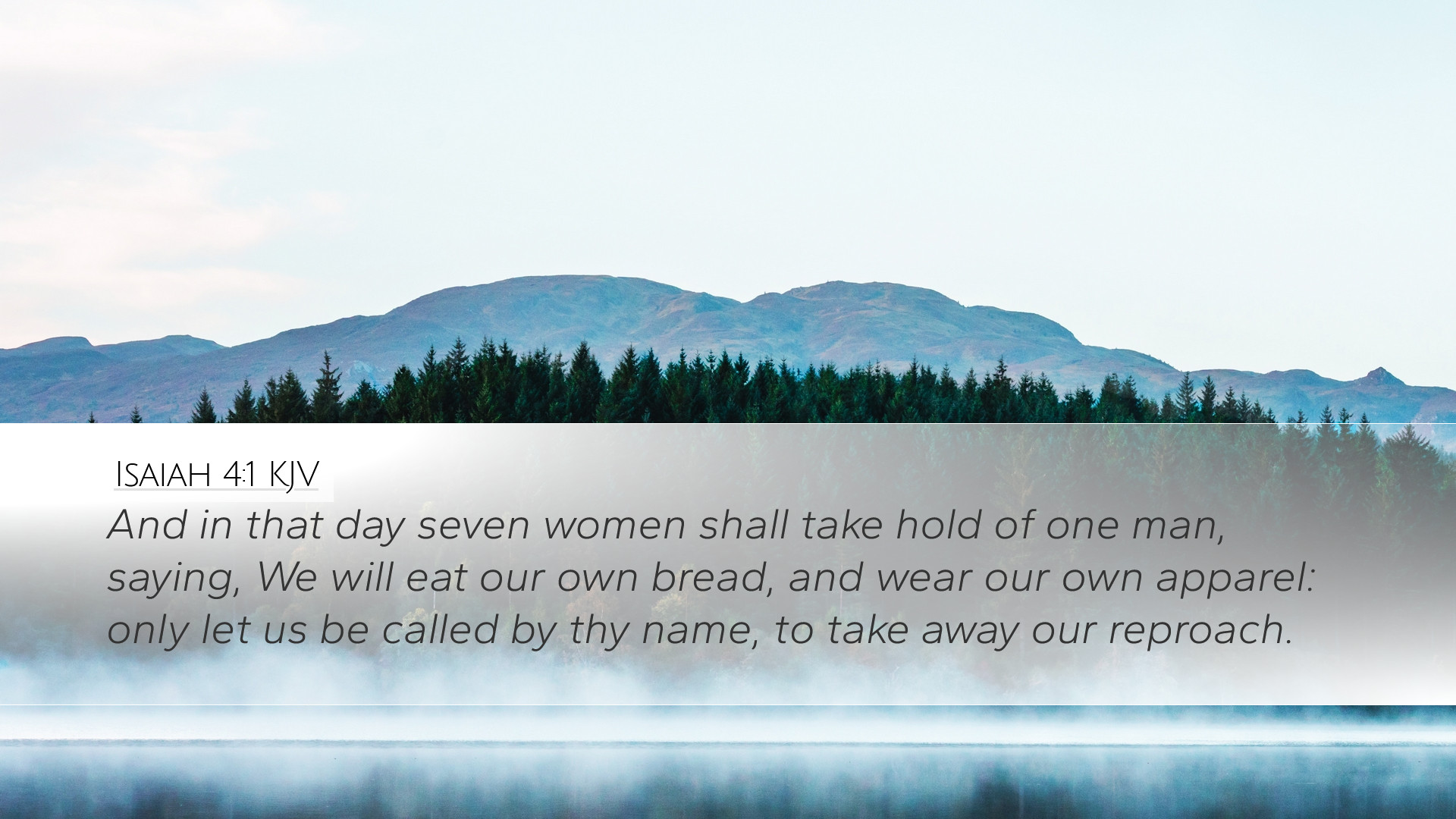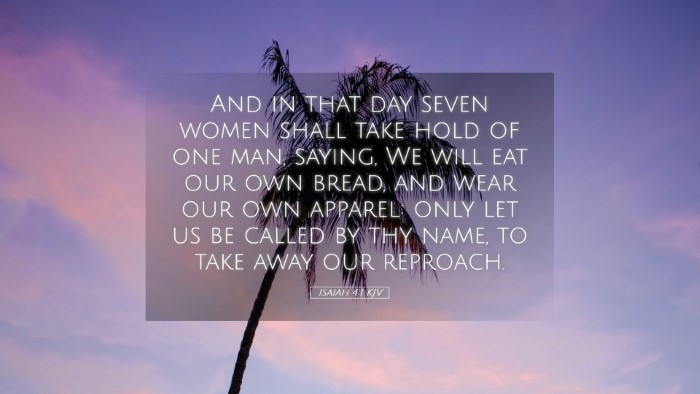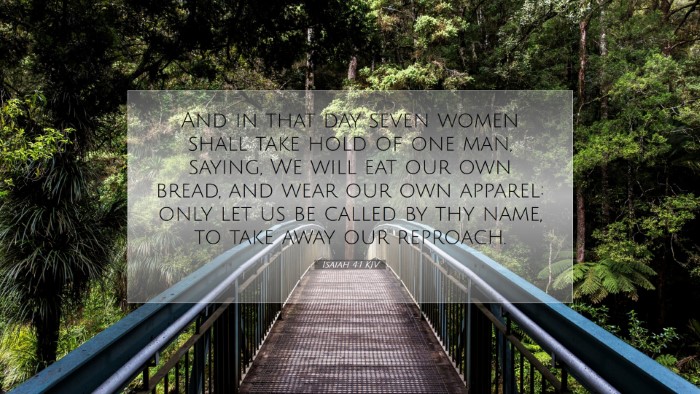Commentary on Isaiah 4:1
Verse: “And in that day seven women shall take hold of one man, saying, We will eat our own bread, and wear our own apparel: only let us be called by thy name, to take away our reproach.” (Isaiah 4:1)
Introduction
This verse serves as a poignant reflection of a time of crisis and societal upheaval, where the male population has significantly diminished, leaving women to seek for security and identity in a patriarchal society. Various public domain commentaries provide a rich backdrop for understanding the implications of this verse.
Contextual Analysis
Historical Background: The context of Isaiah includes both the Assyrian threat and the spiritual decline of Israel. Isaiah prophesies the coming judgment as well as glimpses of restoration. In preceding chapters, he warns of desolation due to sin, which leads us to the desolate situation depicted in Isaiah 4:1.
Insights from Commentators
Matthew Henry
Henry interprets that the desolation of the land and the loss of the men due to warfare and judgment leave women in a vulnerable position. His commentary emphasizes the desperation reflected in the verse; women are willing to forsake traditional roles and expectations for the sake of having a name, a status that indicates social acceptance and protection. This indicates a shift from communal ideals to individual survival.
Albert Barnes
Barnes elaborates on the symbolism of "seven women" representing completeness in Hebrew numerology, indicating a widespread crisis. He notes that the women’s plea "to take away our reproach" suggests that the societal stigma attached to being unmarried or unassigned a husband in ancient Israel was profound. Their willingness to provide for themselves highlights a significant cultural shift caused by the dire circumstances.
Adam Clarke
Clarke’s commentary further develops the idea of social instability. He points out that the “man” they refer to may symbolize not just an individual but a restoration of male leadership in society. The verse alludes to an era where women would strive for an identity that is often defined by their relationship with a man. Their desperation reveals the socio-economic realities influencing their decisions.
Theological Implications
This verse informs us about the theological and social constructs of identity within the community. The appeal to a man for identity and dignity creates critical discourse on the role of gender, culture, and theological significance of marital structures in society. It expresses a longing for restoration not just socially but also spiritually.
Gender Roles and Identity
Henry, Barnes, and Clarke all touch upon the altering gender dynamics during crises. The women's willingness to provide their own sustenance challenges the traditional views of how society defines worth and fulfillment. It calls into question the expectations placed upon individuals in normative social structures.
Hope Amid Judgment
Despite the bleakness represented in this verse, it also serves as a backdrop for the hope that permeates the book of Isaiah. Following Isaiah 4:1, the prophetic voices lead into future promises of restoration where Zion is purified and comforted. This chapter foreshadows a messianic hope, where God's redemption artistry transforms human despair into glory.
Practical Applications
- Understanding Crisis: Pastors and theologians can use this verse to discuss contemporary issues of societal disarray and the ways in which individuals seek identity in times of trouble.
- Gender Discussions: The implications of gender roles during crisis situations can be a powerful topic for discussion in congregational settings.
- Hope Restoration: The transition from judgment to restoration represents a significant theme to explore, focusing on God’s faithfulness and promise amid calamity.
Conclusion
In summary, Isaiah 4:1 not only speaks to the realities of ancient Israel but also reveals timeless truths about the human condition, identity, and the search for hope. The insights from Matthew Henry, Albert Barnes, and Adam Clarke deepen our understanding and challenge us to engage with the complexities of our societal roles and the ultimate restoration found in God’s covenant faithfulness. As we reflect on this verse, may we find hope in the promise of redemption and restoration that pervades the prophetic message of Isaiah.


